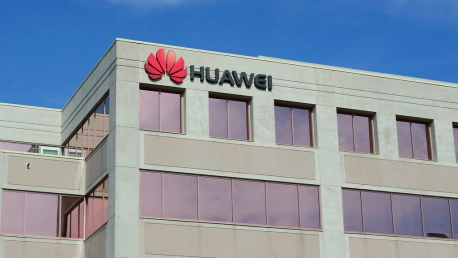The past days have brought bad news for Huawei—and the worst might be yet to come. President Trump issued an executive order giving the federal government the power to bar American companies from doing business with foreign suppliers that could pose a threat to national security. Chinese firm Huawei and its Honor sub-brand is apparently one of these suppliers. According to TechRadar, the order authorizes the commerce secretary to block any transaction involving communication technologies built by companies controlled by a foreign adversary that puts US security at “unacceptable” risk or poses a threat of espionage or sabotage to US networks.
Apparently, this decision has been in the works for almost a year. TechRadar reported that one official claimed that the National Economic Council had blocked the move for months but finally dropped its objection when trade talks between the US and China came to a standstill. While the order doesn’t apply to any specific technology, it covers a wide range of information communications technologies. As a result, it might face legal challenges from companies arguing that it is too broad. An enforcement regime still needs to be developed.
Following the order, Reuters reported that Google suspended business with Huawei that involves “the transfer of hardware, software, and technical services except those publicly available via open source licensing.” This means that future Huawei smartphones could be denied access to popular platforms like the Google Play Store, Gmail, and YouTube. Existing users are safe for now, but Huawei will lose access to updates to Google’s Android operating system. Huawei will only be able to use the public version of Android and will not be able to get access to proprietary Google apps and services.
According to Bloomberg, Chipmakers including Intel Corp, Qualcomm Inc, Xilinx Inc, and Broadcom Inc have told their employees they will not supply critical software and components to Huawei until further notice. Ryan Koontz, an analyst with Rosenblatt Securities Inc. said that Huawei “is heavily dependent on U.S. semiconductor products and would be seriously crippled without the supply of key U.S. components.” The U.S. ban “may cause China to delay its 5G network build until the ban is lifted, having an impact on many global component suppliers.”
Huawei is reported to have built at least a three-month stockpile of chips and other vital components. Bloomberg also reports that government officials privately warned Huawei executives in 2018 to explore non-American alternatives. People familiar with the matter claim that the three-month cushion is a conservative internal estimate and that Huawei could well sustain operations beyond that time-frame.
Perhaps the only silver lining for Huawei is that the US Commerce Department has temporarily lifted the ban until August 2019 to allow networks currently using Huawei equipment to maintain important services for consumers and look for alternatives. Still, given that their next flagship phone, the Huawei Mate 30, is not expected until later in the year, this lifting doesn’t relieve fears that the brand will struggle without having full access to the Android operating system. As of now, it’s unclear how Huawei will be able to gain the full license to work with US companies while the government considers it a threat to national security.
Despite the dire and uncertain situation, Huawei founder Ren Zhengfei remains optimistic about the brand, stating: “We will certainly be able to continue serving our customers. Our mass production capacity is huge, and adding Huawei to the Entity List won’t have a huge impact on us. We are making progress in bidding worldwide.”
So what does the ban mean for consumers? If Huawei wants to keep using Android on their devices, it will need to use the Android Open Source Platform, which is a free system that any brand can use as an underlying foundation for its products. Still, that doesn’t give it access to essential apps like YouTube, Google Maps and Chrome, which means Huawei would be forced to rely on developers to create separate versions of their apps for its phones. The consequences of this could be devastating, given that a fully-stocked app store is essential to the success of any smartphone, as proven by Microsoft and Nokia.
Huawei has previously claimed that it has been developing its own operating system for mobile phones, computers, tablets, TVs, cars and smart wearable devices for almost seven years and that it would be launched in late 2019 or early 2020. Still, the company also said that it would prefer to work with brands like Google and Microsoft to offer the best experiences on its devices. The brand stated that it believes working with international partners remains the best course of action.
In light of all of this, it’s impossible not to wonder how the ban will affect not only Huawei’s brand image but the company itself. Its smartphones have been growing in popularity in the past years and this new order will definitely stunt any future growth to a certain extent. Will the company manage to get the ban lifted? Will Huawei’s alternative to Android fuel its future success? Only time will tell, but this situation is one to keep an eye on if your company is in any way connected to the Chinese company.









